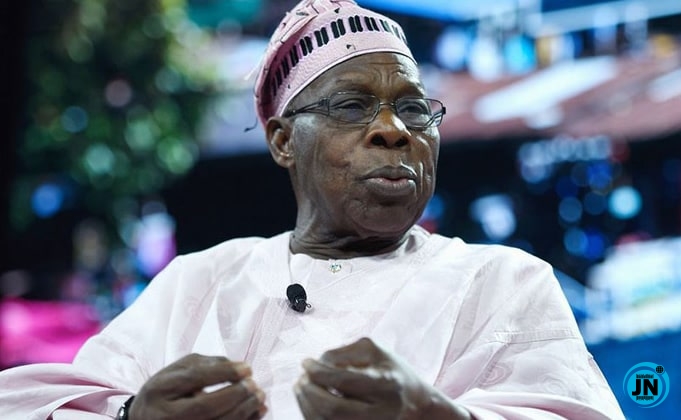Former President Olusegun Obasanjo has criticized the improper use of the Bimodal Voter Accreditation System (BVAS) and the INEC Election Result Viewing Portal (IReV) in Nigerian elections, especially during the 2023 polls. Obasanjo condemned these issues, highlighting that the problems were not caused by the technology itself but rather by deliberate human interference in the election processes.
According to reports, the former president made these comments while delivering a keynote address at the Chinua Achebe Leadership Forum at Yale University on November 15, 2024. His address touched on the ongoing leadership crisis in Nigeria and the significant need for broad reforms to address the country's governance challenges.
In his speech, themed “Leadership Failure and State Capture in Nigeria,” Obasanjo revisited Chinua Achebe’s enduring assertion in his famous book, *The Trouble with Nigeria*: “The trouble with Nigeria is simply and squarely a failure of leadership.” He noted that leadership failures in Nigeria are deeply linked to systemic issues such as bribery, intimidation, and violence, which have contributed to the rise of unqualified individuals to key leadership positions.
Obasanjo stressed the need for a governance framework that is centered on integrity, competence, and proper voter education. Reflecting on the 2023 elections, he described them as “a travesty” and proposed several measures to restore public trust in Nigeria’s democratic process. He stressed the need for reforms in Nigeria’s electoral laws to strengthen the integrity of elections, proposed administrative changes to ensure the credibility of election officials, and called for technological safeguards to prevent election results from being manipulated.
Furthermore, Obasanjo advocated for stricter ballot security measures, accurate voter registration processes, and enhanced cybersecurity protocols to safeguard against election fraud. He also emphasized the importance of preventing electoral violence and protecting voting infrastructure. According to Obasanjo, election infrastructure should undergo transparent, internationally monitored testing to ensure its reliability and integrity before it is deployed during elections.
Obasanjo pointed out the urgent need to revitalize Nigeria’s educational system, stating that education is a key foundation for democratic participation and effective leadership. He echoed Nelson Mandela’s belief that “education is the most powerful weapon which you can use to change the world,” and reaffirmed Chinua Achebe’s view that a thriving democracy requires an informed electorate and morally responsible leadership.
In his concluding remarks, Obasanjo warned against complacency, urging both Nigerians and the international community to actively address the nation’s leadership and governance challenges. He stressed that the failure of Nigeria would have far-reaching consequences, especially given its crucial role in ensuring stability and prosperity across the African continent.
Reflecting on Achebe’s perspective, Obasanjo asserted that leadership failure is the core problem behind Nigeria’s ongoing struggles. He pointed out that the issues, including electoral malpractice, terrorism, and corruption, have compounded the nation’s difficulties. Obasanjo expressed particular concern about the economic decline in Nigeria, noting that the country’s Gross Domestic Product (GDP) has drastically fallen from $510 billion in 2014 to just $199 billion in 2024, according to the International Monetary Fund.
In contrast, Obasanjo highlighted the economic progress achieved during his administration, noting that Nigeria’s GDP growth averaged 6.59%, with the highest growth rate reaching 15.3% in 2002. He credited these positive economic indicators to the reforms implemented in sectors such as telecommunications, banking, pensions, and debt relief, which were driven by a competent leadership team that prioritized national development and economic stability.


